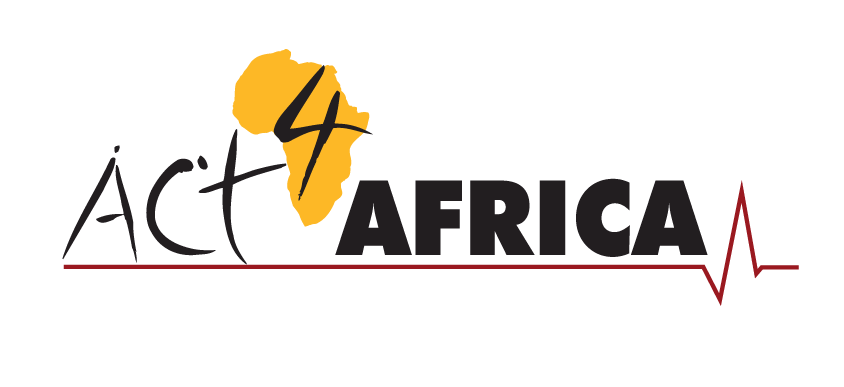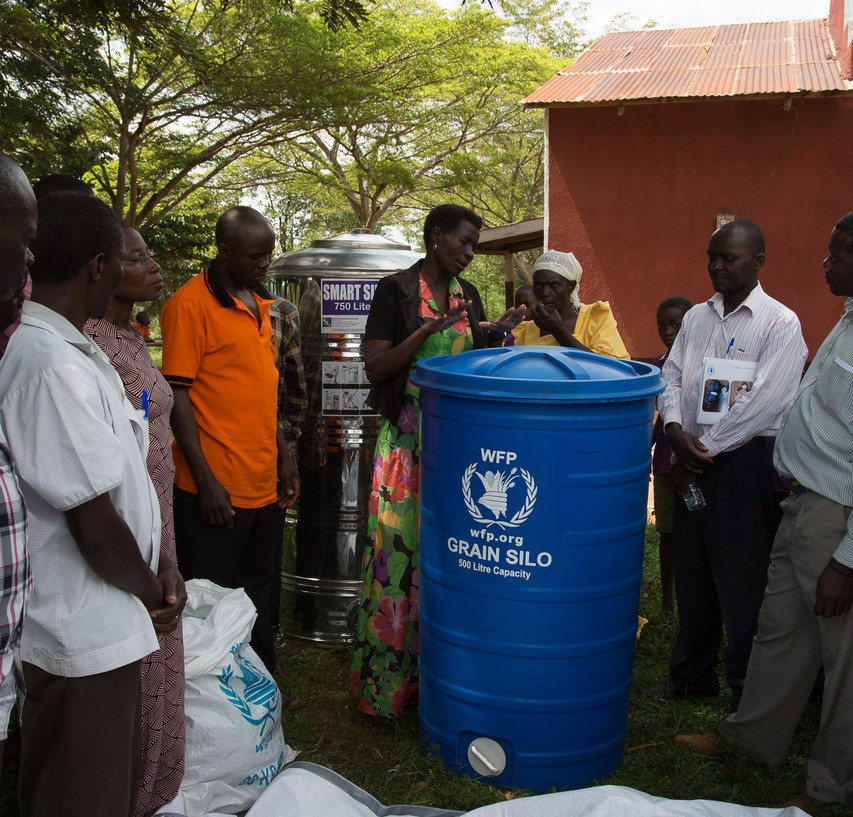
05 Dec Act4Africa, Grains for Growth, and the World Food Programme
[vc_row css_animation=”” row_type=”row” use_row_as_full_screen_section=”no” type=”full_width” angled_section=”no” text_align=”left” background_image_as_pattern=”without_pattern”][vc_column][vc_column_text]Written by Peter Booth, Act4Africa Agricultural Director, November 2020
On October 9th 2020 an announcement was made in Oslo, Norway that the 2020 Nobel Peace Prize was to be awarded to the World Food Programme (WFP).
If we zoom right in to one small corner of the planet, the area of Mayuge in Eastern Uganda, we find Act4Africa working with the assistance of the WFP to help people in this poor region improve their food security.
But let’s return to that story in a moment.
The Nobel Peace Prize gives the WFP recognition,
“For its efforts to combat hunger, for its contribution to bettering conditions for peace in conflict-affected areas and for acting as a driving force in efforts to prevent the use of hunger as a weapon of war and conflict.”
The World Food Programme is the leading humanitarian organisation saving lives and changing lives, delivering food assistance in emergencies and working with communities to improve nutrition and build resilience.
Although the international community has committed to end hunger, achieve food security and improved nutrition by 2030, one in nine people worldwide still do not have enough to eat. Food and food-related assistance lie at the heart of the struggle to break the cycle of hunger and poverty. Food and food related assistance is also a fundamental precursor to improved health, education and livelihood.
Food security is defined as ‘the state of having reliable access to a sufficient quantity of affordable, nutritious food.’
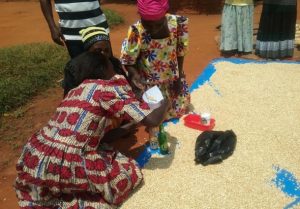
Women learn how to test moisture levels of grain using affordable and effective technology
Worldwide, the WFP is well known particularly for emergency relief and we’ve all seen the trucks of “food aid” on our TV screens. However, it is less known for its many projects to promote longer term resilience and development. It’s in this context that Act4Africa is helping roll out a training programme which helps people ensure crops are stored securely for the long term.
Our Grains for Growth programme aims to educate and equip women in this rural region to safely store grain for their family’s needs, or for selling at an appropriate time to bring in much needed income. Desperately poor women are empowered and enabled to make decisions and take action to improve the food security and economic prospects for their families. Their status within the home increases and they begin to grow and make positive changes within their community.
What’s the background to this project?
I have spoken to dozens of individuals whose lives are blighted due to an inability to produce sufficient crops form their meagre parcel of land. To make matters worse, most subsistence farmers then lose around 30% of their grain crops after harvesting, primarily due to insect infestation and mould development during storage.
What is this project and how does it work?
Through workshops delivered by Act4Africa, people learn how to dry and store their grain effectively and learn simple methods to ensure the grain has reached an optimum level of moisture. These workshops are backed up with simple instruction manuals in the local language. Dry grain is then stored in airtight plastic containers, manufactured by WFP’s approved suppliers. Containers are sealed securely and left sealed for at least one month. This ensures that any insects present in the grain are killed off rather than multiplying and destroying the grain.
Following this training programme, grain losses have been reduced to virtually zero by these simple interventions.
The containers are very sturdy and have the potential to be used for around twenty years.
Each container holds enough grain for 1000 meals.
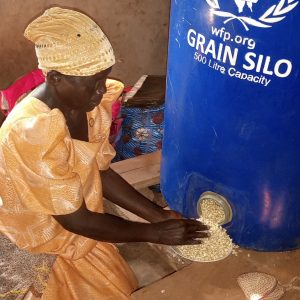
What are the implications?
Firstly, people can feed their family for a prolonged period with grain in good condition. Drying grain in the correct manner also prevents fungal growth and the development of high levels of carcinogens know as aflatoxins.
The World Health Organisation reports that “long-term or chronic exposure to aflatoxins has several health consequences including causing liver cancer and has “the potential to cause birth defects in children.” The WHO also reports that “aflatoxins cause immunosuppression, therefore may decrease resistance to infectious agents (e.g. HIV, tuberculosis)’ Sadly, the situation gets even worse. In areas where the poorest quality grain is used for animal feed, aflatoxins can be found in milk. Subsequently these may be passed to infants though breast milk.
In short, storing grains in poor condition has long term health implications, reduced life opportunities and causes death. I have spoken to individuals who are forced to eat grain which has gone off when there is no other alternative.
Properly stored grain can be held back by householders and sold later in the season when prices have risen. Within a few months, grain can double and even treble in price.
Some children are expected to take a bag of grain to school in order to enrol each term. A simple thing like having a few kilos of grain available can help keep a child in education. Our team in Uganda have met individuals who know that grain in their silos will secure their children’s next term at school. In a world where so much can go wrong this is hope.
During the Covid pandemic, those who have previously benefited from the WFP training rolled out by Act4Africa have shown greater resilience. They have been able to pull on their grain, properly dried and stored in their silos. In short, these people have better food security which is helping them get through this unprecedented crisis.
So simple, so effective. What next?
WFP have rolled out this programme in several African countries in the last 5 years and it’s been stunningly effective. We have seen for ourselves the effectiveness in this our first pilot programme in Mayuge.
We are now seeking funding for containers, and the money to support personnel to deliver training and training materials.
Equipping, training and supporting a group of 35 families costs approximately £7,500. This cost also includes significant follow up work to ensure the training is properly embedded for the long term. The World Food Programme and our own experience has shown this effective training and the follow up work changes people’s lives for ever. It provides skills which will bear fruit year after year, long after the trainers have left.
If you wish to support this programme please donate here. A donation of £70 will cover the cost of one silo. [/vc_column_text][/vc_column][/vc_row]
